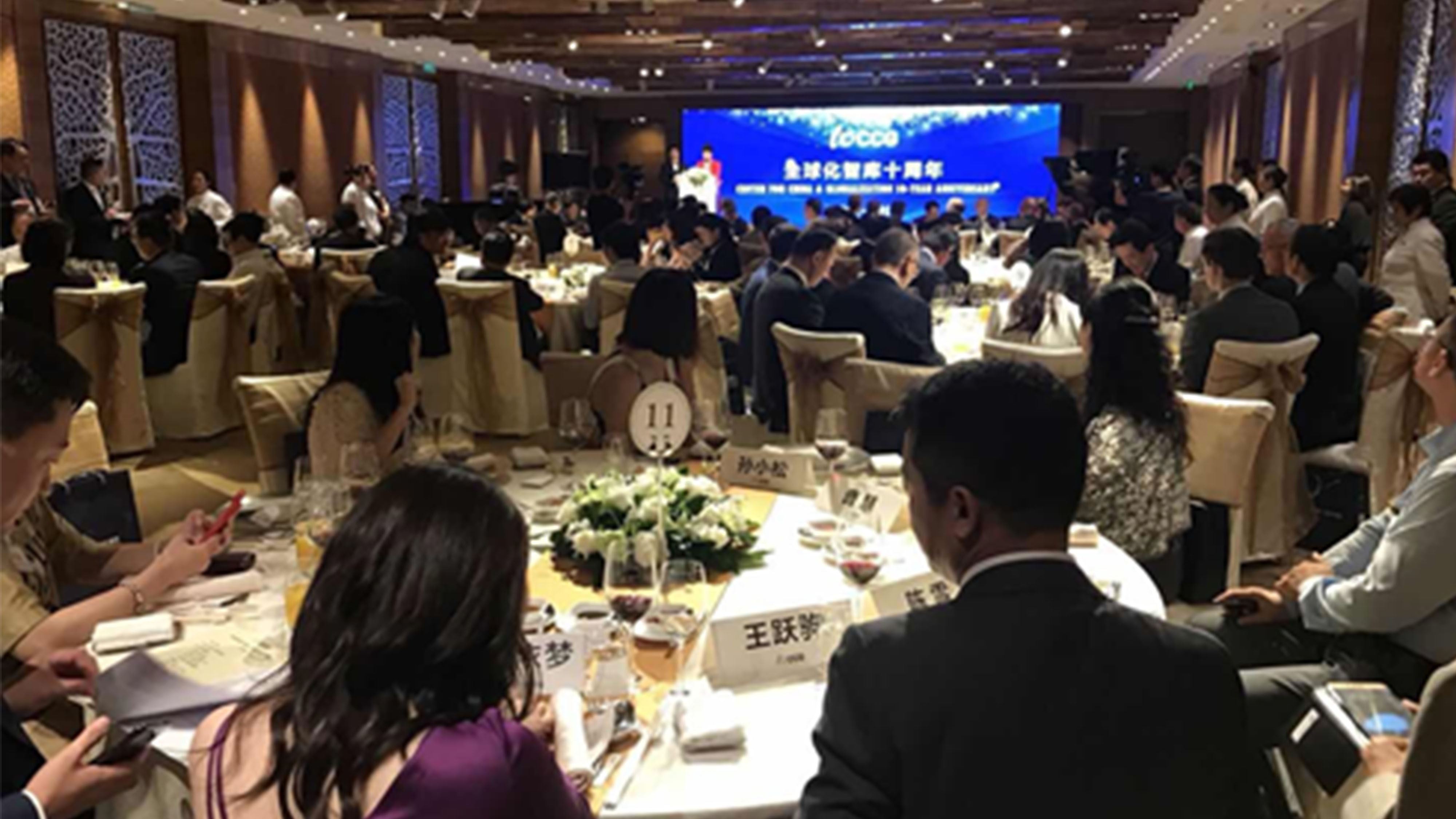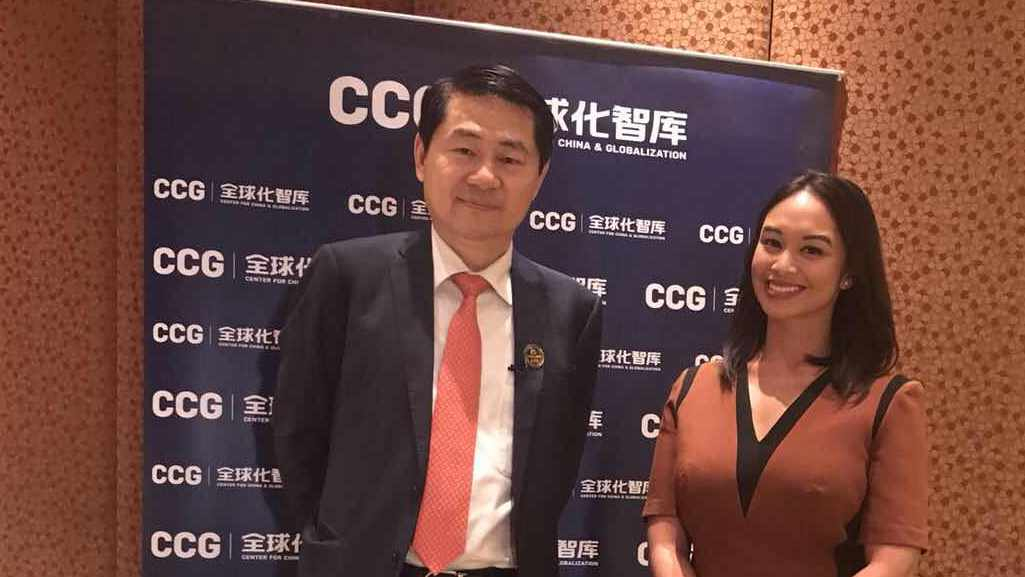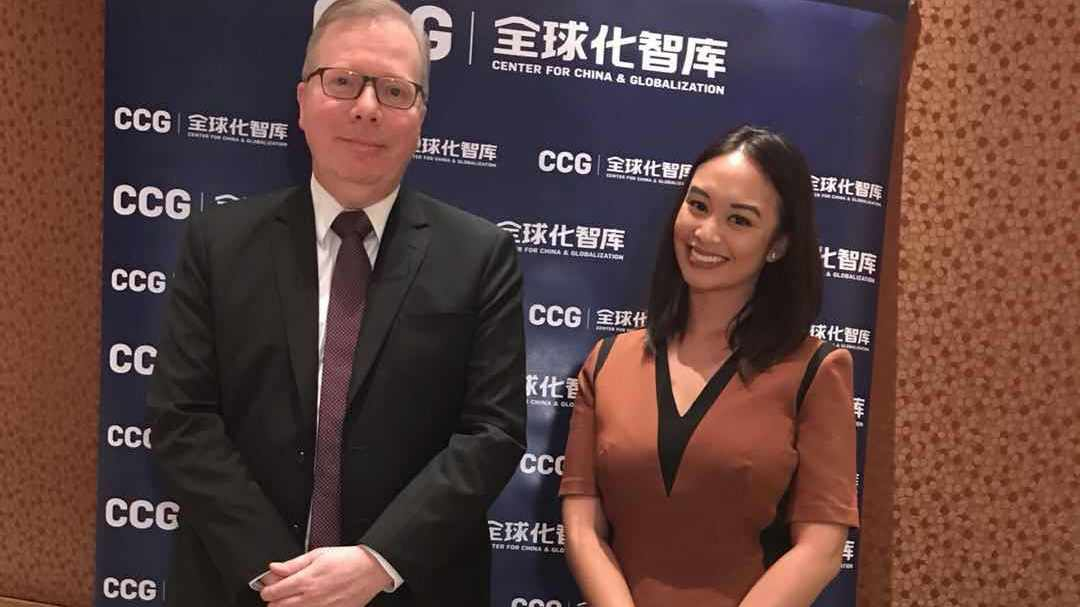
Business
14:32, 03-Jul-2018
The Center for China and Globalization 10 years on
Updated
14:07, 06-Jul-2018
CGTN‘s Jenny Cortes Ybañez
02:44

The Center for China and Globalization (CCG) – one of China's top independent think tanks and around the world – celebrated its 10-year anniversary in Beijing on Saturday. It was ranked in the top 100 of its kind worldwide by the “2017 Global Go To Think Tank Index.” It’s also the first Chinese research organization to appear on this prestigious list.
Wang Huiyao, the founder and president of CCG told CGTN the secret of its success at the 10-year anniversary.
“So in order to make a think tank work, we need all the experience that we can get and also all the knowledge that we can have. So for me, the most important advice that I could give is to think globally and act locally. You have to combine China and globalization and that’s basically our think tank.” said Wang Huiyao.

Wang Huiyao (Left), founder and president of the Center for China and Globalization, and Jenny Cortes Ybañez (Right), CGTN reporter. CGTN Photo
Wang Huiyao (Left), founder and president of the Center for China and Globalization, and Jenny Cortes Ybañez (Right), CGTN reporter. CGTN Photo
Research organizations seeking to provide policy advice have existed in China for a long time. But the rapid expansion of think tanks in recent years has been a direct result of top-level government encouragement and planning.
In 2012, at an economic work conference of the Communist Party of China (CPC) Central Committee, General Secretary Xi Jinping first proposed establishing high-quality think tanks to serve policymaking. In 2013, the third plenary session of the 18th CPC Central Committee passed a resolution that specified the creation of “new types of think tanks with Chinese characteristics.”

Nicholas Rosellini (Left), the UN Resident Coordinate and UNDP Resident Representative in China, and Jenny Cortes Ybañez (Right), CGTN reporter. /CGTN Photo
Nicholas Rosellini (Left), the UN Resident Coordinate and UNDP Resident Representative in China, and Jenny Cortes Ybañez (Right), CGTN reporter. /CGTN Photo
Wang Huiyao and Nicholas Rosellini, the UN Resident Coordinator and UNDP Resident Representative in China respectively, have also shared their views on the rapid growth of China’s think tanks.
“China is developing very fast. The kind of issues that need to be examined is multiplying as China becomes a much more complex economy, a much more complex society. And therefore I think there’s a strong demand I think from the government and from international partners, such as the United Nations, for partners to collaborate on research and policy issues.” said Nicholas Rosellini.
"The existing Chinese system needs really a new mechanism, new forces to put in the system to do the balancing checks and that's where the think tanks have played such a big role and think tanks are getting more attention now probably more than ever before in China in the last five years," Wang said.
A report published by the think tank and civil societies program at the Lauder Institute of the University of Pennsylvania shows the United States has the highest number of think tanks, at 1,872, while China is in second place with 512, followed by India and the UK.

SITEMAP
Copyright © 2018 CGTN. Beijing ICP prepared NO.16065310-3
Copyright © 2018 CGTN. Beijing ICP prepared NO.16065310-3